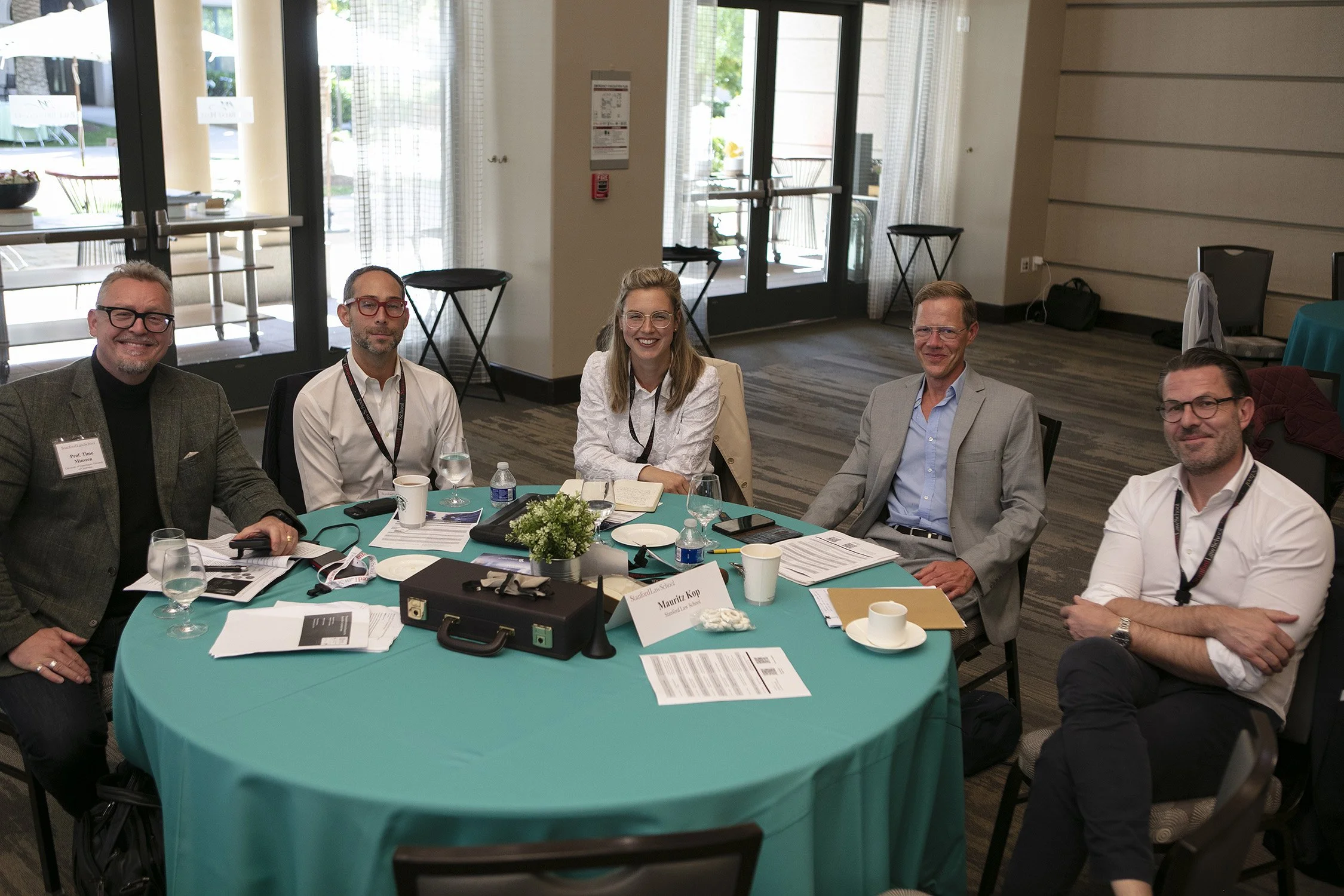Stanford, CA, October 11, 2024— Today, the Stanford Center for Responsible Quantum Technology, situated within Stanford Law School, had the distinct honor of hosting a high-level delegation from the Kingdom of the Netherlands. Stanford RQT Founding Director Mauritz Kop had the pleasure of welcoming Her Excellency Birgitta Tazelaar, Ambassador of the Kingdom of the Netherlands to the United States, and the Honorable Theo Peters, Consul General of the Netherlands in San Francisco, for a series of critical discussions at the intersection of technology, governance, and international security.
The delegation, which also included Attaché for Innovation, Science and Technology Coen Damen, Senior Advisor for Innovation, Technology & Science Tyrone Pater, and Economic Affairs Associate Jasmijn Al Kenany, engaged with our Center on the most pressing challenges and opportunities presented by exponential technologies. This visit underscores the deepening transatlantic dialogue on responsible innovation and the shared commitment of the United States and the Netherlands to forging a future where technological advancement aligns with democratic values and global stability.
A Delegation of Diplomatic Experience
The breadth of the delegation’s expertise provided a rich foundation for our conversations. Ambassador Tazelaar brings three decades of diplomatic experience in political affairs, human rights, and development cooperation. Her distinguished career includes serving as Deputy Director-General for International Cooperation at the Dutch Ministry of Foreign Affairs, Director of the North Africa and Middle East Department, and as a political counselor at the Dutch Embassy in London, where her portfolio included NATO and nuclear security issues. This extensive background in navigating complex geopolitical landscapes proved invaluable to our discussions on international treaties and security frameworks for emerging technologies.
Consul General Theo Peters, who represents the Netherlands across the 13 westernmost states, has a wide-ranging background covering security policy, political affairs, and economic trade. A core part of his mission is to connect the Dutch government and its innovation ecosystem with key partners on the US West Coast, particularly in high-tech sectors. His academic credentials, including an MPA from the Harvard Kennedy School, and prior diplomatic postings in Tokyo and as Ambassador to Senegal and several other West African nations, provided a global perspective on innovation models and economic security.
Cybersecurity, strategic competition and innovation policy
The delegation's specialists brought further focus. Mr. Damen's work on innovation policies, space, and cyber, and his professional interest in how state policy can foster balanced and ecologically sound economic growth, directly informed our dialogue on national strategies. Mr. Pater, also a Tech Diplomacy Fellow at the UC Berkeley Risk & Security Lab, focuses on how like-minded countries can collaboratively stimulate research in critical areas like AI and cybersecurity to address international strategic competition and enhance research and economic security. Ms. Al Kenany, who is pursuing a Master of Science in Cyber Governance at Leiden University, contributed a vital perspective on the role of tech diplomacy in strengthening international relations and ensuring that the benefits of emerging technologies are democratized while safeguarding global security.
Meer lezen


